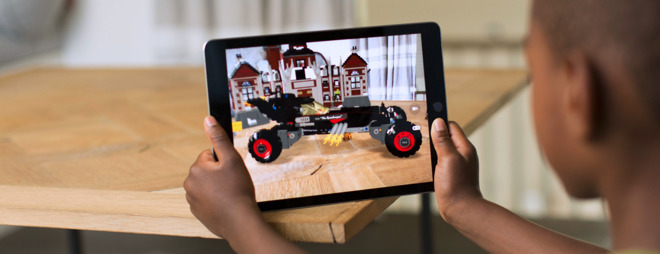Apple's hegemony over its hardware and software platforms could boost not just the company's own augmented reality efforts, but the AR industry in general -- in a way that hasn't been managed by Google so far.

Since only Apple is allowed to build iOS devices, that creates a consistent target for both it and third-party developers, Bloomberg noted. In June the company revealed ARKit, a toolset meant to simplify AR projects for the iPhone and iPad. A number of companies, like Peter Jackson's Wingnut AR, have already demonstrated some early projects.
Consistency also means that users are more likely to update to the latest operating system -- about 86 percent of iOS devices in the wild are running iOS 10 or later. Bloomberg remarked if even half of the billion-plus iOS devices are upgraded to iOS 11, that will create a massive and heretofore unseen market for AR developers.
One catch is that ARKit will only work on products with an A9 processor or better, cutting off units like the iPhone 6 and even the A8X-powered iPad Air 2.
Nevertheless, the situation is an improvement over the state of AR on Android. Despite Google unveiling its Tango toolset as far back as 2014, the company has yet to achieve much traction, something likely attributable to fragmentation. Only 11.5 percent of Android devices are running the latest software, and hardware makers are free to use vastly different camera, sensor, and processor combinations.
Google is looking to cut fragmentation via Project Treble, which should make it it cheaper and easier for phone vendors to deliver software updates, but that won't solve the dilemma of getting companies to use AR-friendly hardware.
Apple marketing VP Greg Joswiak has claimed that developer response to ARKit has been "unbelievable." CEO Tim Cook, however, has the said the company is merely on a "runway" at this point, possibly hinting at the company's rumored AR glasses. That product is likely a year or more away.
In the meantime, this fall's "iPhone 8" may implement a rear-facing laser for both AR purposes and faster autofocus. Some Android phones already use laser autofocus.


